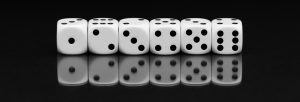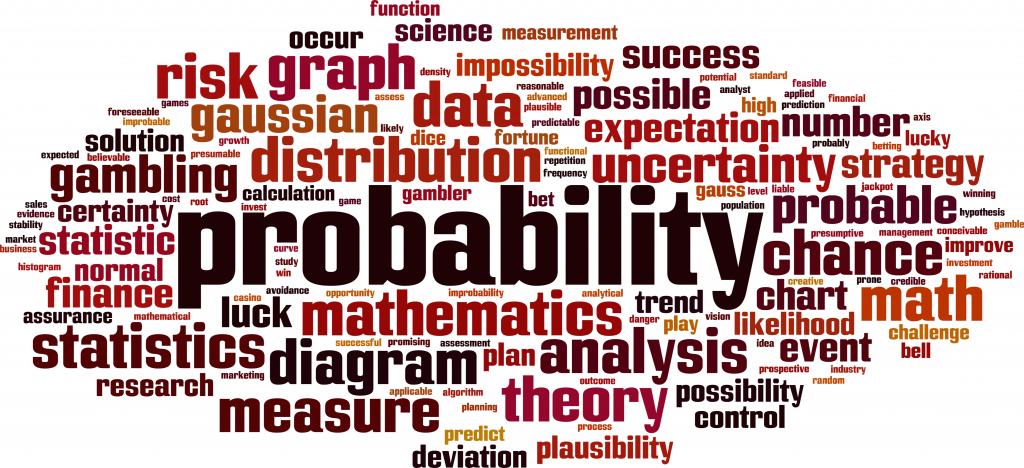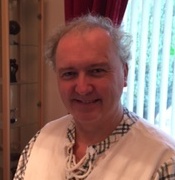A Master class in Probability Work – a beautiful way in towards understanding from Saturday morning workshop adventure
The fascinating topic of probability is more relent now than ever. We take probability choices every day of our lives and make critical decisions to enhance our safely and our well-being. For example, “The chances are if I wear a facial mask, I have a reduced risk of contracting covid”…..”the chances are if I am respectful to the people I meet in life, they will be respectful to me in return”.
Learning Probability
Students learn at an early age that probability values range from zero (impossible) to 1 (certain) with a myriad of events in between.
If we consider probability work in year 7, 8, 9, 10 or 11, it is fascinating to hear the range of responses when you pose the question “If I roll two dice, what is the chance that both dice come down as a 6”. The most popular incorrect answers include 2 in 12, 1 in 12 and 2 in 6!
The dream solution to finding a way in to probability came unexpectedly and fortuitously when I accompanied a group of Frome College students to a mathematics Master Class at the University of Bath which was run as a series of Saturday mornings. This was the first time I had seen the impact of having six dice available and a score sheet for the game of ‘ZILCH’.
WHY SHOULD YOU BOOK A MATHS TUTOR?
ZILCH – The Probability Game
Two students rolled one dice each and the highest score would go first.
The points scoring was quickly understood by the students:
-
-
-
-
- 3 dice scoring 2 in one go = 200
- 3 dice scoring 3 in one go = 300
- 3 dice scoring 4 in one go = 400
- 3 dice scoring 5 in one go = 500
- 3 dice scoring 6 in one go = 600
- 3 dice scoring 1 in one go = 1000
- 1,2,3,4,5,6 in one go = 1500
- 1 Five = 50
- 1 One = 100
-
-
-
The first player to reach 2000 or more points was the winner of ZILCH.
Firstly, each player rolls all six dice at once and places aside the scoring dice. For example, a score of 2,2,2, 3, 4 and 5 scores 200 points (three twos) plus 50 points (one five) to give 250 points.
Then the player makes a decision to stick with this score or to carry on and ‘gamble’. To gamble, the player would throw again the non-scoring dice, in this case the 3 and the 4.
However, if a player decides to gamble and then does not score in the rolling of the other dice, they score ‘ZILCH’ or as they say in America – Zilch means nothing.
After that, Zilch became a beautiful way in to my probability work for the next twenty years. ZILCH World Cups were a joy to observe with winners coming up to the whiteboard to put their names on the board before playing someone else.
INTEGRATION IN MATHS: THE PADDINGTON BEAR APPROACH
Learning the probabilities
After a few games, we would discuss the ZILCH dilemma using a ‘Sample Space Diagram’ where a player has two dice remaining and has a score or three hundred or so points. Should I gamble or should I stick? Because of the points given for One 1 or One 5, students could see that there were 20 possibilities out of 36 for improving their score if a risk was taken.

The Odds
Students could also clearly see that the chances of rolling a six and a six with two dice were one in thirty six! In additions, we would give a round of applause to the first 1,2,3,4,5,6 in a lesson that was witnessed.
I even, on just one occasion in twenty years, witnessed a win on the first go. 1, 1, 1, 1, 1, 1!
In conclusion, ZILCH was instantly one of my favourite ways into teaching a topic in mathematics. After all, it simplified a topic that many students did not at first find easy to understand. I will always be grateful to the University of Bath for running such sparkling sessions for pupils on an inspired Saturday morning workshop.
A bit about the author of this article, Chris C:
Chris is a freelance tutor who has 28 years of full-time teaching experience. He was Head of Department in a large Somerset college from 1992 to 2014.
He holds a B.Sc. in Maths & Science and a B.Ed. in Mathematics.
With an enthusiasm and interest in mathematics, Chris can raise self-confidence and belief by making maths fun. He concentrates on setting the language in context and building clear scaffolding in topics based on his insight and understanding of the subject.



